|
By Thanda Ko Gyi Over the past 12 months, I didn’t have much time to myself. Rushing from one Myanmar Ocean Project expedition to the next, there was little time to relax and even less time to absorb everything my team and I had experienced over the course of our field trips. When COVID-19 put our plans for the rest of the season to an abrupt halt, I found myself with a scarce resource: time. I decided to take these weeks of isolation to organise my thoughts and reflect on everything that has happened in this past year. The result? I realized how incredibly proud and grateful I am for the life-changing and fun experiences I’ve had through my work with Myanmar Ocean Project. Here are three things that put a smile on my face and maybe on yours too: 1. We removed nearly two tonnes of harmful fishing gear from the ocean When we set out on our first-ever survey expedition into the Myeik Archipelago in early 2019, we had no idea what to expect. Our goal was to collect data on derelict fishing nets in as many locations as possible and research its underlying causes and impacts. But would we actually find the places, where abandoned, lost, or otherwise discarded fishing gear (ALDFG) accumulates? How many nets would our small team of divers be able to remove? 11 months, 89 dive sites, and hundreds of dives later, our team has extracted over 1,800 kg (yep, that’s right!) of discarded fishing gear from Myanmar’s beautiful underwater world. What does that mean? It means that in those places, coral reefs can thrive again without being suffocated by layers of fishing nets, crustaceans and juvenile fish can grow up without getting injured or killed in net entanglements, and fishermen should see fish populations rebound in the future. If you look at the big picture, of course, this is just a drop in the ocean. Myanmar’s ocean still holds thousands of tonnes of discarded or lost fishing gear beneath its surface. We haven’t stopped the problem at its source - yet. But we are working on it and we can already see our advocacy efforts bearing fruits. 2. I’m a Myanmar woman After having lived abroad, away from my family and culture for over ten years, I struggled to fit in culturally and socially when I returned to Myanmar. It wasn’t until I went on my first Myanmar Ocean Project expedition that I began to embrace my differences. As it turned out, the combination of my Myanmar heritage and my outsider’s perspective was an advantage. As a Myanmar woman, my interactions with the communities were not limited to formal arrangements, where social norms dictate who can communicate and who can’t. Instead, I was able to engage with everyone in a more informal manner building trusted relationships with people across different communities. One day, I’d be having my morning coffee and a retired fisherman fixing a nearby building would strike up a conversation about Myanmar Ocean Project’s work and share his thoughts on the issue of discarded fishing gear. Another day, I’d be helping out giggling Moken girls in their kitchen and end up planning a Try-Scuba-Dive for them to show them their home reef from a different perspective. In some of the communities, the locals were so welcoming it started to feel like a second home for us. I’d never have thought that my mission to explore the scope, causes, and threats of discarded fishing gear would bring me closer to my identity as a Myanmar woman but I’m glad it did. 3. Our team rocks When you’re out on expeditions for weeks in a row, spending twenty-four hours a day together, it takes a lot of flexibility and humour to work effectively as a team (and not kill each other!).
I was lucky enough that every single person contributing to Myanmar Ocean Project’s work, may it be the captain, the boat boys, the volunteers from the community and villages, or the divers and researchers were nothing short of incredible. Some of our divers would be so enthusiastic to remove fishing gear I had to force them to sit out on dives to make sure they pace themselves. Our boat boys assisted our divers diligently from the surface on kayaks and put in extra hours to sort and store collected ghost nets properly. The kids in the village would await us at the pier in the mornings asking whether they could join us and help out in spotting and retrieving fishing nets. I never dreamt of being surrounded by such a dedicated, hard-working, and passionate bunch of people both below and above the water’s surface. Whenever the tasks in front of us seem overwhelming, I just look around me to find renewed motivation and inspiration. Thank you to my team and everyone involved for being part of this incredible journey! I can’t wait until we can start into the next chapter for Myanmar Ocean Project and work together towards a healthy ocean in Myanmar.
7 Comments
|
Archives |
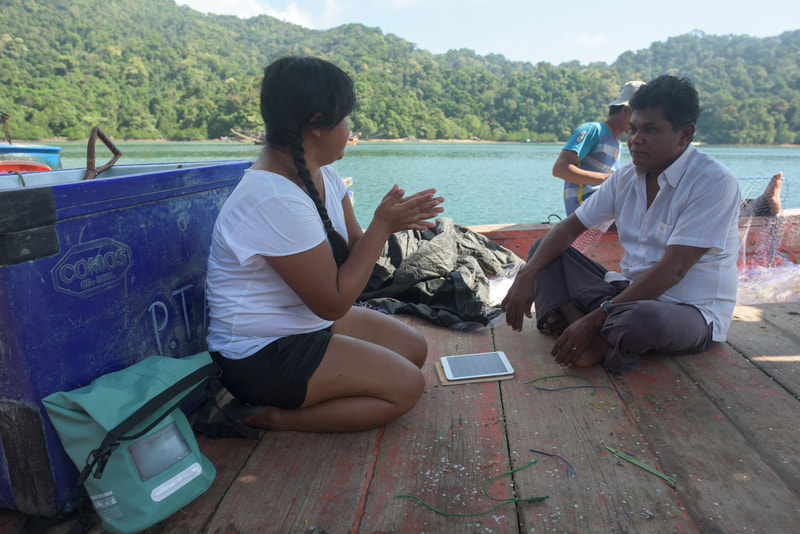
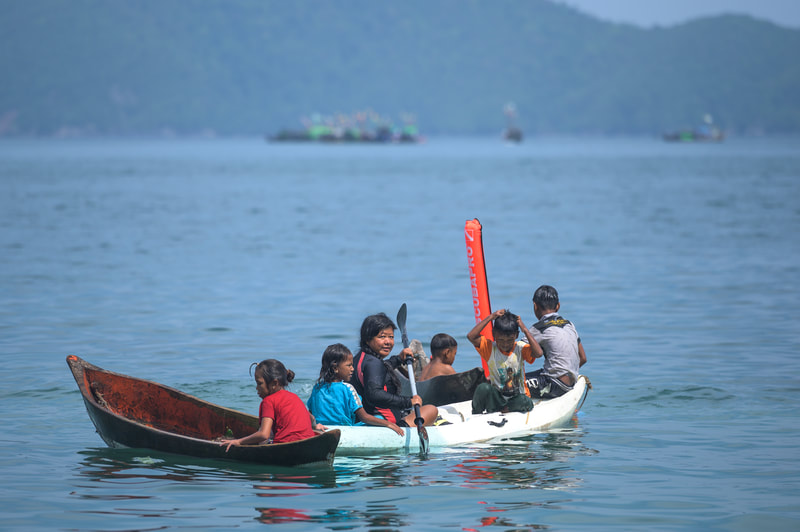
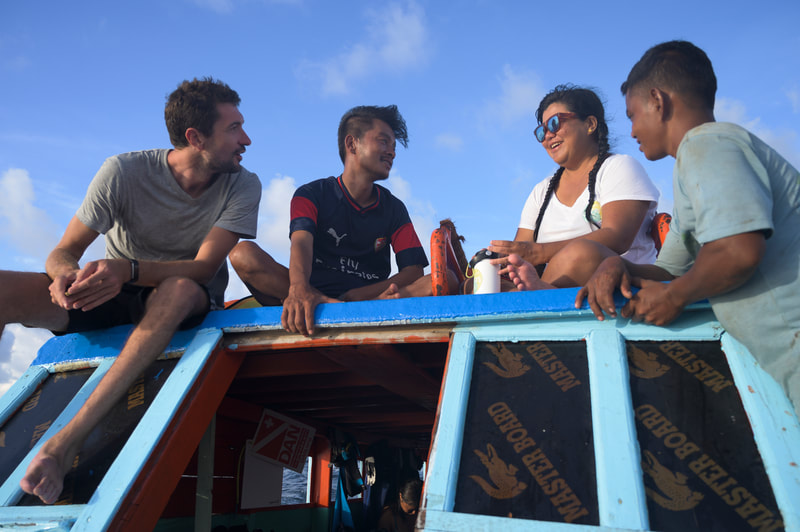
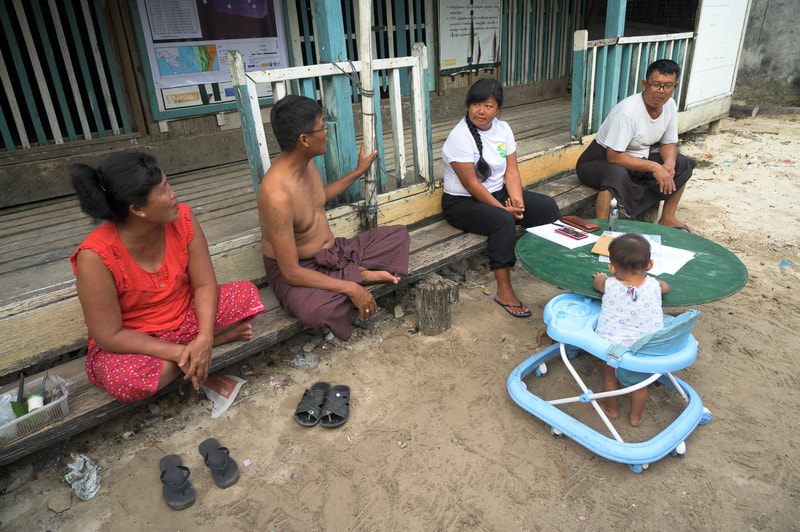
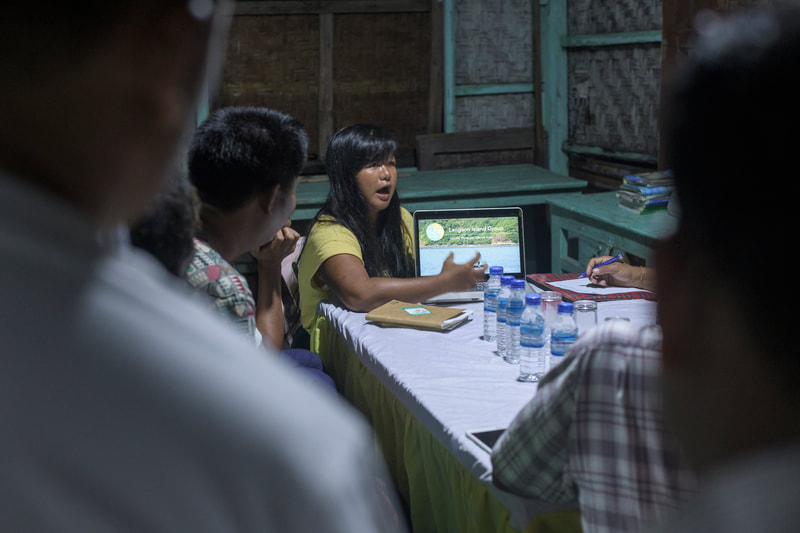
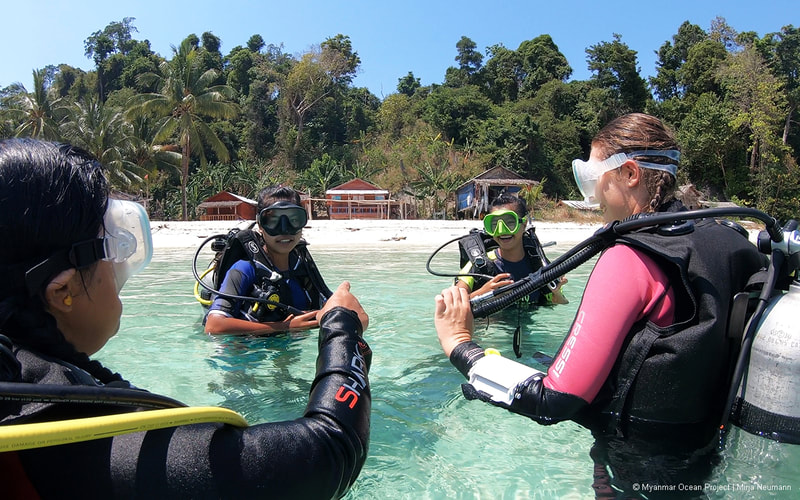
 RSS Feed
RSS Feed